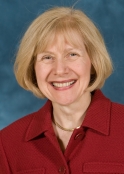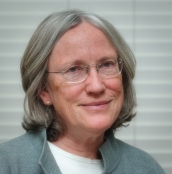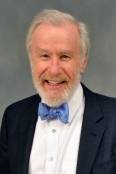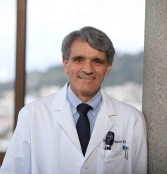Congratulations to our 2018 Honorary Fellows
To view a complete list of Honorary Fellows, click here.
Robert H. Brown, Jr., DPhil, MD
Professor and Chair of Neurology at the University of Massachusetts Medical Center and Medical School. He is also the Director of the Day Neuromuscular Research Laboratory at the University of Massachusetts Medical School. Dr. Brown graduated from Harvard Medical School and completed his doctoral training in neurophysiology at Oxford University. Dr. Brown trained in Neurology at Mass General. In 1984, The Day Neuromuscular Research Laboratory was founded by Dr. Brown to investigate neuromuscular diseases, including Miyoshi myopathy and ALS.
Dr. Brown’s laboratory has focused on the identification of gene defects that elucidate the molecular pathogenesis of selected neuromuscular diseases including ALS, muscular dystrophy, adrenoleukodystrophy, hereditary neuropathy and hyperkalemic periodic paralysis. Knowledge of these disease genes has facilitated the creation of mouse and cell-based models of these disorders. In turn, these resources have allowed study of therapeutic strategies using conventional small molecule approaches and new modalities such as inhibitory RNAi.
Eva L. Feldman, MD, PhD

Professor Eva Feldman is a clinician-scientist whose career focuses on understanding the neurological complications of obesity and diabetes. With 25 years of continuous funding from NIH, she is Principal Investigator on 3 multi-institutional grants to complete comprehensive transcriptomic, proteomic, and metabolomic phenotyping of obese and diabetic children and adults, with the goal to understand the pathogenesis of neurological complications, particularly diabetic neuropathy. She also oversees 5 NIH grants supporting basic scientific research employing cellular and murine models of metabolic injury. Her findings are published in 375 manuscripts, 70 book chapters, and she has authored 4 books. Professor Feldman served as President of the American Neurological Association and is a member of the National Academy of Medicine. She has received lifetime achievement awards from the ADA, JDRF and the Endocrine Society. In 2016, she was named the National Physician of the Year for Clinical Excellence among the Best Doctors in America.
Stephen L. Hauser, MD
Stephen L. Hauser, M.D. is the Robert A. Fishman Distinguished Professor of Neurology at the University of California, San Francisco. He is Director of the Weill Institute for Neurosciences, an umbrella organization that links the clinical and basic neurosciences at UCSF to accelerate research against neurologic diseases. A neuroimmunologist, Dr. Hauser’s research has advanced our understanding of the genetic basis, immune mechanisms, and treatment of multiple sclerosis (MS). His work led to the development of B cell therapies for MS patients, representing a powerful new approach for relapsing forms of the disease and the first therapy of proven value for progressive MS.
Dr. Hauser is a member of the National Academy of Medicine and a fellow of the American Academy of Arts and Sciences and the American Academy of Physicians. He is an editor of the medical textbook Harrison’s Principles of Internal Medicine. Previously chairman of the Department of Neurology at UCSF for 25 years, he has also served as President of the American Neurological Association, President of the Medical Staff at UCSF, Chair of the Research Advisory Committee for the Veteran’s Administration, and editor-in-chief of Annals of Neurology. He also served the Obama administration as a member of the Presidential Commission for the Study of Bioethical Issues charged with advising the President on issues that may emerge from advances in biomedicine and related areas of science and technology.
Dr. Hauser has received numerous awards and honors for his work, including the Jacob Javits Neuroscience Investigator Award, the John Dystel Prize and the Charcot Award for Multiple Sclerosis Research, and the 2017 Taubman Prize for Excellence in Translational Medical Research.
Dr. Hauser is a graduate of MIT (Phi Beta Kappa) and Harvard Medical School (Magna Cum Laude). He trained in internal medicine at the New York Hospital–Cornell Medical Center, in neurology at the Massachusetts General Hospital (MGH), and in immunology at Harvard Medical School and the Institute Pasteur in Paris, France, and was a faculty member at Harvard Medical School before moving to UCSF.
Story C. Landis, PhD

Story Landis received her undergraduate degree from Wellesley College and her Ph.D. from Harvard University. After postdoctoral work at Harvard University, she served on the faculty of the Department of Neurobiology there. In 1985, she moved to Case Western Reserve University School of Medicine, where she created the Department of Neurosciences that achieved an international reputation for excellence.
Dr. Landis joined the National Institute of Neurological Disorders and Stroke in 1995 as Scientific Director. She re-engineered the Institute’s intramural research program and fostered a trans-National Institutes of Health neuroscience community that led to the construction of the Porter Neuroscience Building. From 2003 to 2014, Dr. Landis served as the Director of NINDS, overseeing an annual budget of $1.6 billion that supported research by investigators in its intramural program and public and private institutions across the country. Together with the National Institute of Mental Health and National Institute of Aging directors, she co-chaired the NIH Blueprint for Neuroscience Research, a roadmap-like effort to support trans-NIH brain research activities. In 2013 and 2014, she and Dr. Tom Insel played a key role in launching the NIH Brain Research through Advancing Innovative Neurotechnologies Initiative.
Dr. Landis currently serves on the Scientific Advisory Boards of the Vollum Institute at Oregon Health Sciences University, the Neurological Research Institute at Baylor College of Medicine and the Lundbeck Foundation Brain Prize and the Scientific Review Boards of the Howard Hughes Medical Institute and the Wellcome Trust.
Throughout her research career, Dr. Landis made fundamental contributions to the understanding of how functionally appropriate synapses form during development and the role of neurotrophins in peripheral nervous system. She is an elected fellow of the National Academy of Medicine, the Academy of Arts and Sciences and the American Association for the Advancement of Science. In 2015 she received the Ralph W. Gerard Prize from the Society of Neuroscience for outstanding contributions to neuroscience.
Steven P. Ringel, MD

Steven P. Ringel, M.D. is Emeritus Professor of Neurology and directed the Neuromuscular Section of the University of Colorado School of Medicine from 1976 until retiring in 2017. He authored numerous articles and four books covering a broad range of issues in research, patient care, health policy, and patterns of practice. Past appointments include Vice Chair, Department of Neurology, Editor of Current Treatment in Neurology, Editor-in-Chief of Neurology Today, Treasurer of the American Neurological Association, President of the American Academy of Neurology (AAN) and President of the University of Colorado Hospital (UCH) medical staff.
Having founded the Office of Clinical Practice at UCH in the early 1990s, Dr. Ringel served as Vice President for Clinical Effectiveness and Patient Safety until 2015.
An honors graduate of the University of Michigan Medical School, Dr. Ringel completed his neurology residency at Rush-Presbyterian-St. Luke's Medical Center in Chicago and a post-doctoral research fellowship at the National Institutes of Health. He completed a Robert Wood Johnson Health Policy Fellowship and served as an Institute of Medicine Scholar-in-Residence working as Senator Jay Rockefeller's health policy aide during the 1992 Congressional session.


